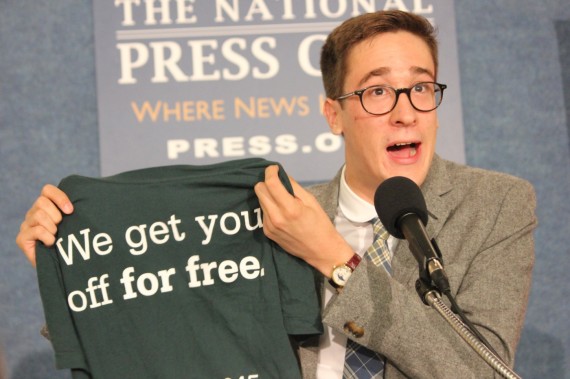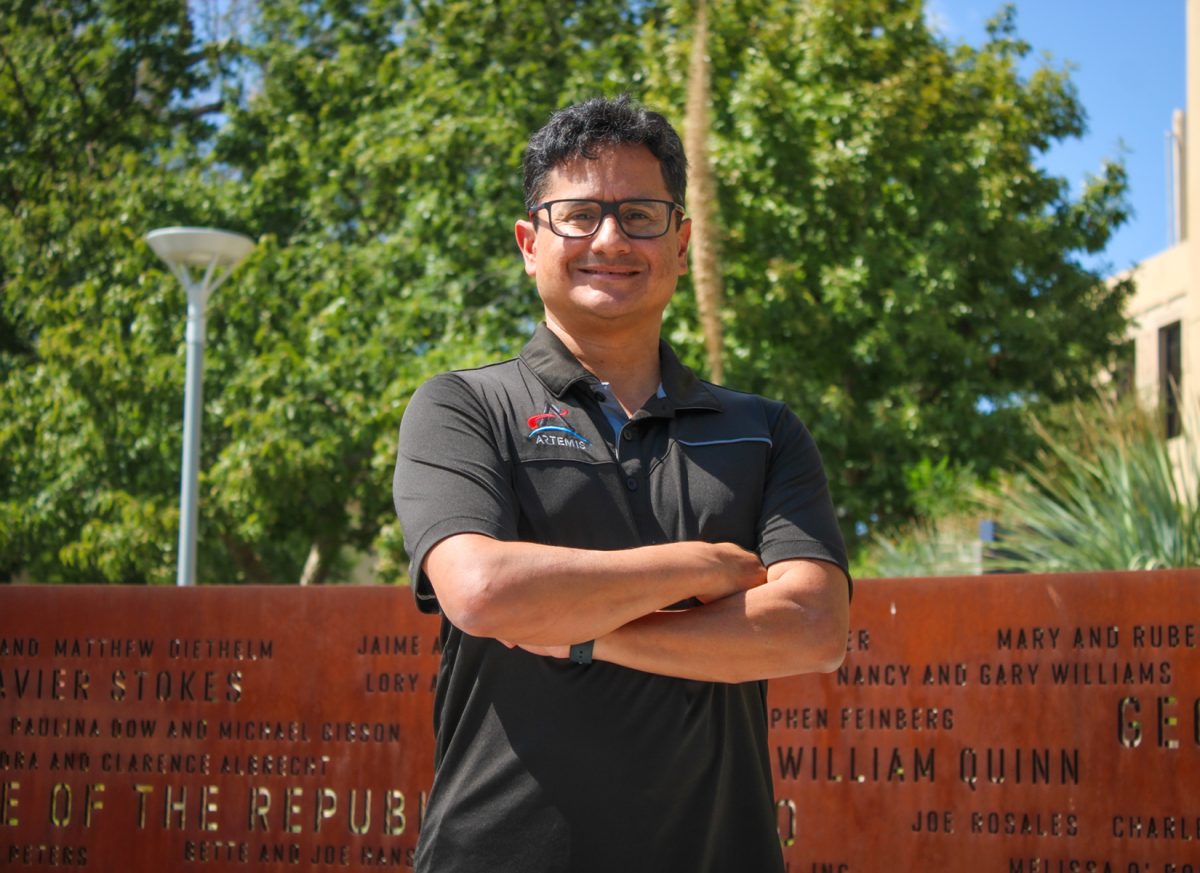This story has been updated to include a statement from Ohio University.
WASHINGTON – Erin Furleigh is going to court for wearing a T-shirt.
She and other members of Iowa State University’s chapter of the National Organization for the Reform of Marijuana Laws faced resistance and conflicting messages from the university when the group designed shirts for the organization. They weren’t allowed to print the word “marijuana” on the shirts because the university said it encouraged drug use.
Furleigh, a junior genetics major, met with officials, tried to get other designs approved and appealed the decisions.
“At that point, we were really considering giving up on it because we’re little students and they’re big university officials, and it can be really intimidating when you’re young and just going into college,” Furleigh said.
At the suggestion of an adviser, Furleigh got in touch with the Foundation for Individual Rights in Education, an organization that has used letters and press releases to highlight constitutional rights violations at public colleges and universities.
Furleigh and other students spoke Tuesday at a news conference announcing the launch of FIRE’s Stand Up for Speech Litigation Project. FIRE and the Davis Wright Tremaine law firm helped students and faculty sue four universities for violations of free speech: Iowa State University, Ohio University,Chicago State University and Citrus College in Glendora, Calif.
Representatives for Iowa State University and Chicago State University couldn’t be reached for comment. A representative from Citrus College declined to comment on pending legal action. Ohio University responded late Tuesday to a request for comment. A spokeswoman said in a statement that the university is reviewing the lawsuit and the allegations.
FIRE’s latest project targets campus speech codes throughout the country that FIRE says violate First Amendment rights, President Greg Lukianoff said. Many universities’ speech codes create “free speech zones” on campus that limit areas where people can express themselves. Harassment policies often ban “offensive” speech.
Lawyers working with FIRE plan to sue a university in each of the 11 federal court circuits, and after each ruling or settlement, the project will target another school in the same circuit.
“Many universities maintain their speech codes, not just because they may actually believe in a mythical ‘right not to be offended’ on campus, but because they believe there is no downside,” Lukianoff said. “They say to themselves, ‘Well, maybe I can point to our speech codes if we get sued for harassment, discrimination or personal injury, and it’s not very likely that we’ll have to go to court for violating student free speech rights, so let’s keep our speech codes.’”

Lawyer Bob Corn-Revere said the First Amendment violations are “ironic,” not only because college campuses are considered a “marketplace of ideas,” but also because laws related to free speech are well established.
In 1989, the Supreme Court struck down a University of Michigan hate speech code in Doe v. Michigan. More recently, the Supreme Court on Thursday eliminated a Massachusetts abortion clinic buffer zone law as a violation of First Amendment rights.
Ohio University senior Isaac Smith encountered a problem similar to Furleigh’s when members of the administration told him to stop wearing a shirt advertising the groupStudents Defending Students, an organization that helps students navigate the school’s disciplinary process after they’ve allegedly violated the student code of conduct. The shirt, meant in jest, said, “We’ll get you off for free.”
The Ohio University Student Code of Conduct states that the university is “an open forum involving the free exchange of ideas and opinions.”
The university’s statement said administrators “never directed the students or the student organization to not wear the T-shirts” and that no disciplinary action occurred. Instead, administrators talked with students about how the shirts could be perceived by others and inhibit the goals of Students Defending Students.
“We believe our conversations represented civility in disagreement and that the University administrators acted properly as responsible educators in their handling of this situation,” the statement said.
Smith decided to act when he realized his school’s attempts to create a “friendlier” campus also discouraged people from speaking out and expressing themselves. He said he hopes to change Ohio University policies and encourage students to do the same throughout the country.
“You’ve got to speak up and speak out,” Smith said. “Schools need to know that being open to differing viewpoints is exactly what college is for.”
Reach Reporter Kate Winkle at [email protected] or 202-326-9865. SHFWire stories are free to any news organization that gives the reporter a byline and credits the SHFWire.









